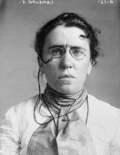Related Research Articles

Emma Goldman was a Russian-born anarchist, political activist, and writer. She played a pivotal role in the development of anarchist political philosophy in North America and Europe in the first half of the 20th century.
Anarcha-feminism, also referred to as anarchist feminism, is a system of analysis which combines the principles and power analysis of anarchist theory with feminism. It closely resembles intersectional feminism. Anarcha-feminism generally posits that patriarchy and traditional gender roles as manifestations of involuntary coercive hierarchy should be replaced by decentralized free association. Anarcha-feminists believe that the struggle against patriarchy is an essential part of class conflict and the anarchist struggle against the state and capitalism. In essence, the philosophy sees anarchist struggle as a necessary component of feminist struggle and vice versa. L. Susan Brown claims that "as anarchism is a political philosophy that opposes all relationships of power, it is inherently feminist".

Lucy Eldine Gonzalez Parsons was an American labor organizer, radical socialist and anarcho-communist. She is remembered as a powerful orator. Parsons entered the radical movement following her marriage to newspaper editor Albert Parsons and moved with him from Texas to Chicago, where she contributed to the newspaper he famously edited, The Alarm.
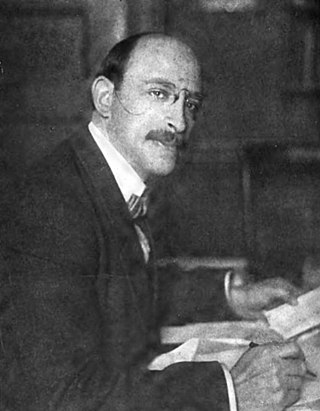
Alexander Berkman was a Russian-American anarchist and author. He was a leading member of the anarchist movement in the early 20th century, famous for both his political activism and his writing.
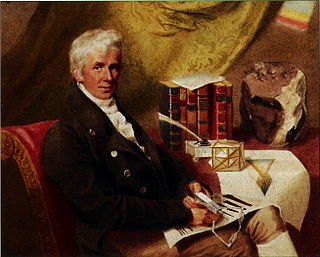
The Sowerby family was a British family of several generations of naturalists, illustrators, botanists, and zoologists active from the late 18th century to the mid twentieth century.
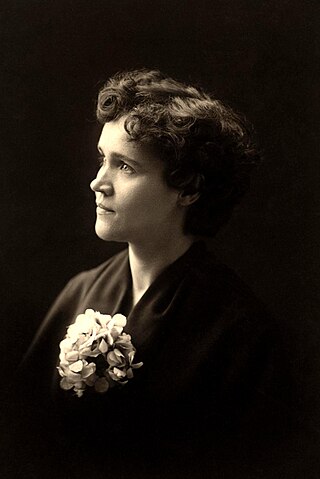
Voltairine de Cleyre was an American anarchist known for being a prolific writer and speaker who opposed capitalism, marriage and the state as well as the domination of religion over sexuality and women's lives which she saw as all interconnected. She is often characterized as a major early feminist because of her views.

Anarchism has long had an association with the arts, particularly with visual art, music and literature. This can be dated back to the start of anarchism as a named political concept, and the writings of Pierre-Joseph Proudhon on the French realist painter Gustave Courbet. In an essay on Courbet of 1857 Proudhon had set out a principle for art, which he saw in the work of Courbet, that it should show the real lives of the working classes and the injustices working people face at the hands of the bourgeoisie.
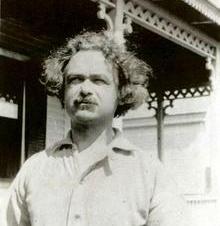
Hippolyte Havel (1871–1950) was an American anarchist who was known as an activist in the United States and part of the radical circle around Emma Goldman in the early 20th century. He had been imprisoned as a young man in Austria-Hungary because of his political activities, but made his way to London. Then in the British metropolis he met anarchist Emma Goldman on a lecture tour from the United States. She befriended him and he immigrated to the United States.
Anarchism in the United States began in the mid-19th century and started to grow in influence as it entered the American labor movements, growing an anarcho-communist current as well as gaining notoriety for violent propaganda of the deed and campaigning for diverse social reforms in the early 20th century. By around the start of the 20th century, the heyday of individualist anarchism had passed and anarcho-communism and other social anarchist currents emerged as the dominant anarchist tendency.
The Little Review, was an American literary magazine founded by Margaret Anderson in Chicago's historic Fine Arts Building, published literary and art work from 1914 to May 1929. With the help of Jane Heap and Ezra Pound, Anderson created a magazine that featured a wide variety of transatlantic modernists and cultivated many early examples of experimental writing and art. Many contributors were American, British, Irish, and French. In addition to publishing a variety of international literature, The Little Review printed early examples of surrealist artwork and Dadaism. The magazine's most well known work was the serialization of James Joyce's Ulysses.

Anarchism and Other Essays (1910) is a collection of essays written by Emma Goldman, first published by Mother Earth Publishing Association. The essays outline Goldman's anarchist views on a number of subjects, most notably the oppression of women and perceived shortcomings of first wave feminism, but also prisons, political violence, sexuality, religion, nationalism and art theory. Hippolyte Havel contributed a short biography of Goldman to the anthology. The essays were adapted from lectures Goldman had given on fundraising tours for her journal Mother Earth.Anarchism and Other Essays was Goldman's first published book. "The Traffic in Women" has received particular attention from feminist scholars since the book's publication.

This version of Mother Earth was an anarchist periodical aimed at the discussion of progressive issues. It was in circulation among people in the radical community in the United States from 1933–1934.
Anarchism has been an undercurrent in the politics of Palestine and Israel for over a century. The anarchist ideology arrived in Palestine at the beginning of the 20th century, carried by a big wave of emigrants from Eastern Europe. The ideas of Peter Kropotkin and Leo Tolstoy had remarkable influence on famous exponents of some Left Zionists. Anarchists organized themselves across Israel and Palestine, and influenced the worker movement in Israel. Anarchists often call for a zero state solution, to the Palestinian Israeli conflict, in reference to a complete abolition of the states of Israel and Palestine.

Now and After: The ABC of Communist Anarchism is an introduction to the principles of anarchism and anarchist communism written by Alexander Berkman. First published in 1929 by Vanguard Press, Now and After has been reprinted many times, often in partial or abbreviated versions, under the titles What Is Communist Anarchism?, What Is Anarchism? or The ABC of Anarchism.

John H. Edelmann (1852–1900) was a socialist-anarchist who worked as an architect in the office of Alfred Zucker, a successful commercial architect of the 1880s and 1890s in New York City. As an architect, Edelmann's sole surviving monument is the former headquarters of the Decker Brothers Piano Company, the Decker Building (1893), at 33 Union Square West, New York. Louis Sullivan was influenced by his work with Edelmann and credits Edelmann's concept of "suppressed function" with the inspiration for his maxim, "Form follows function," a watchword of Modernism.
Rutherford and Son is a play by Githa Sowerby (1876–1970), written in 1912. It premiered in London in the same year with four matinee performances at the Royal Court followed by a run of 133 performances at the Vaudeville Theatre. The production was directed by Norman McKinnel who also took the role of Rutherford. The same production opened at the Little Theater, New York, on Christmas Eve, 1912 and ran for 63 performances. The Times theatre critic, Arthur Bingham Walkley, called it "a play not easily forgotten, and full of promise for the future as well as of merit in itself", while the Saturday Review thought it showed "what can be done in the modern theatre by keeping strictly to the point." Journalist Keble Howard, after an interview with Sowerby in 1912, wrote that, "Rutherford and Son is a marvellous achievement...".
Anarchism is the political philosophy which holds ruling classes and the state to be undesirable, unnecessary and harmful, and opposes authority and hierarchical organization in the conduct of human relations.

Leonard Abbott was an anarchist and socialist best known for co-founding the Stelton Colony and related Ferrer Association in the 1910s.
Anarchism or Socialism? is a 1906/1907 work by Soviet leader Joseph Stalin. The work sought to analyze anarchism using Marxist methods.
References
- Arthur Redding, "The Dream Life of Political Violence: Georges Sorel, Emma Goldman, and the Modern Imagination", Modernism/Modernity, v.2, n.2, pp. 1–16 (April 1995) (analyzing Social Significance as part of an examination of ties between Modernism and anarchism)
- Alice T. Friedman, "A House Is Not a Home: Hollyhock House as 'Art-Theater Garden', The Journal of the Society of Architectural Historians, v.51, n.3 (Sept. 1992), pp. 239–260 (speculating that likely influence of Goldman's work on Aline Barnsdall's commission of Hollyhock House, a Frank Lloyd Wright mansion intended to establish a progressive theatrical community in the Los Angeles neighborhood, Olive Hill)
Footnotes
- ↑ For more information on this little-known playwright, see Mark Brown, "Githa Sowerby, the Forgotten Playwright, Returns to Stage", Guardian, 2009/08/14.
- ↑ Bryan Waterman, "Goldman and Middleton: Feminism and Modern Drama", Patell and Waterman's History of New York, Oct. 27, 2008.
- ↑ Harry G. Carlson & Erika Munk, Foreword to the 2000 edition, Hal Leonard Corp., ISBN 0-936839-62-7.
